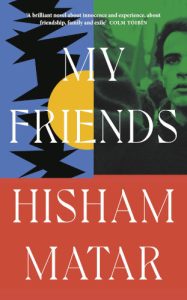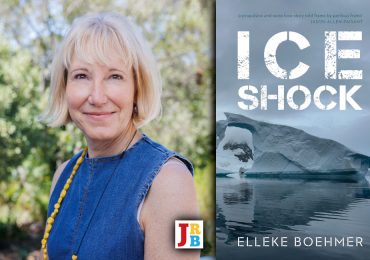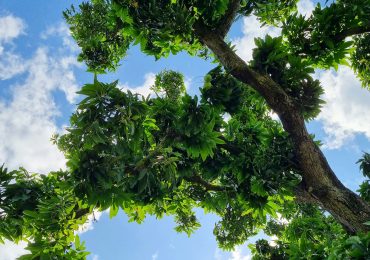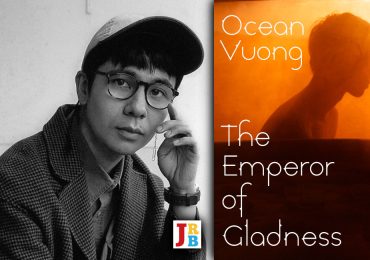In My Friends, Hisham Matar hones in on the push and pull of friendships, their guiding light and the cushion-like quality they offer amid the hardening uncertainty and chaos of a life in exile, writes Shayera Dark.

My Friends
Hisham Matar
Viking, 2024
Hisham Matar’s novel My Friends, winner of the 2024 Orwell Prize for political fiction, is not a typical immigrant tale in which the protagonist ultimately finds a semblance of security, stability and peace in the bosom of their adoptive home. Here, rather, fear is a pervasive, palpable feature for exiled Libyan writers and dissenters.
Each character lives under the constant threat of Muammar Gaddafi’s vengeful dictatorship, which has no qualms about silencing critics on the streets of London in broad daylight, as evidenced by the 1980 assassination of a BBC Arabic Service journalist at a mosque in London. Another brazen, real-life attack that appears in the book is the 1984 shooting of anti-Gaddafi demonstrators in London’s St James’s Square, when a gunman sprayed the crowd with machine gun fire from inside the Libyan embassy. (The embassy was later reopened in Knightsbridge, a location chosen because the pavement was ‘too narrow to host a demonstration’.)
That harrowing event serves as the inciting incident that plunges eighteen-year-old Khaled and his two friends, Mustafa and Hosam, into the belly of the beast. Just as the so-called invisible hand of the capital market governs the laws of supply and demand, the invisible but ever-present threat of discovery looms over their conversations with family back in Libya and their own lives in England. Neither the fact they had concealed their faces at the demonstration, nor the presence of the police at the hospital where Khaled and Mustafa are being treated for gunshot wounds, nor their asylum status quells this threat. In fact, Khaled and his friends are certain that they are not only persona non grata with their government, but also a danger to their family in Libya, where Hosam’s father has denounced him on national television for criticising the dictatorship in his collection of short stories.
Fearing the worst, with regime moles being planted among university students, Khaled and Mustafa abandon their studies at Edinburgh University—and their government scholarships—and relocate to London as exiles. For years, Khaled avoids telling his family about his participation in the embassy protest, as the regime monitors citizens through tapped phone lines and intercepted letters. He refuses to travel to Libya, despite his family’s pleas, and it isn’t until several years later, when the Libyan government lifts travel restrictions and Britain begins issuing visas to Libyans again, that he reconnects with his family in London.
My Friends resembles a puzzle, in the sense that one already knows at the start how the final assembled picture will look or, in the case of the novel, how the narrative ends. For instance, we know that Gaddafi’s regime eventually crumbles; we know that both Hosam and Mustafa return and participate in Libya’s liberation; we also know that Mustafa remains in Libya and that Khaled’s family relocate to Tripoli after their home is razed to the ground, along with the rest of Benghazi, by warring militias in the aftermath of the revolution. The task, then, is to figure out how each piece fits together, or rather what chains of events led to these outcomes.
Told from Khaled’s point of view, the story opens with him saying goodbye to Hosam at St Pancras station before walking back home to Shepherd’s Bush, reminiscing about his life and friendships stretching from Margaret Thatcher’s rule in the nineteen-eighties to the Arab Spring of the twenty-tens. Indeed, much of the narrative dwells on the push and pull of his friendships, their guiding light and the cushion-like quality they offer amid the hardening uncertainty and chaos of a life in exile.
Khaled follows his father’s criteria for choosing true friends, finding a few who bring him pleasure and whom he trusts. He finds that the commonality of a shared nationality is no guarantee of amity and can be a great source of stress and distrust. For example, when Khaled first meets Hosam, who at the time is working as a hotel receptionist in Paris, the latter suspects him of being a government spy on the prowl, and it’s only when Hosam secretly verifies the information gathered during their conversation that he relaxes and learns to trust Khaled. In turn, when Hosam confesses his suspicions it needles his friend, despite his own general distrust of his fellow Libyans.
Yet despite living the unsettled lives of political exiles, far away from the love of family and the familiar landscapes of their homeland, Khaled, Mustafa and Hosam manage to find various friends and lovers who provide a kind of anchor to a life rendered restless and rootless: Mustafa, now a real estate agent with dreams of toppling Gaddafi’s government, falls in with a group of revolutionary minded Libyans, in spite of Khaled’s reservations; Hosam, roaming Europe in search of an elusive peace, discovers something akin to a home with his on-and-off Irish girlfriend; while Khaled’s friendships with a professor and students from his former university soften the otherwise sharp edges of life. Indeed, friends are the silver lining of dark, foreboding clouds. As Khaled says to a friend he supported during her hospitalisation: ‘Thank you for asking me to come. It’s the greatest compliment anyone has ever paid me’.
In addition to its preoccupation with friendship and the grief of political exile, My Friends brims with an unbridled appreciation of Arabic, African and English literature, revelling in literary references and honourable mentions of past poets and novelists from Virginia Woolf to Tayeb Salih to Nizar Qabbani. In one scene, Hosam and Khaled trace the London homes of Joseph Conrad and other writers on foot, including the spot where Dambudzo Marechera squatted in Shepherd’s Bush. But even as the novel flies its undeniably bookish colours (all three friends share a love of reading), Matar’s delightfully lively and pithy prose keeps the reader engaged ‘like a bird alighting on a branch, turned vivid’, to borrow Khaled’s description of a friend’s voice. Every allusion to language and literature is well appointed, revelatory and expansive to the plot and characters.
On Hosam’s oral storytelling prowess, Khaled notes that unlike his ‘gaunt’ prose:
here the language was languid and the stories followed an elaborate route, taking several digressions. He loved the performance itself, a chance to display his authority over the Arabic language, wielding its majestic formalism and irreverence in ways that excited my longing and regret at having allowed it to wither in me. Perhaps this was part of his purpose: to help reawaken my passion for the mother tongue. And sometimes I wondered whether he was telling me these stories and recollections because he wanted me to locate him within some wider geography.
For Mustafa, Hosam’s decision to bury his gift after the publication of his short story collection is a cowardly one: ‘What a chance he had,’ he says. ‘We are lying here like corpses and he has a microphone to the world’. But for Khaled, the reason is more nuanced.
At the heart of My Friends, perhaps, is the question of what role writers should take in the affairs of state, whether they have an obligation to speak truth to power, and whether it is always wise to do so. And if so, at what cost?
- Shayera Dark is a writer whose work has appeared in publications that include LitHub, Harper’s Magazine, Al Jazeera, AFREADA, The Kalahari Review and CNN.





